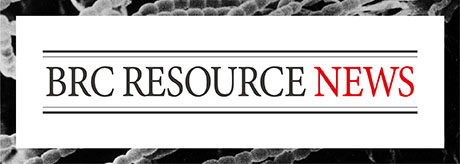PKC theta II / pFLAG (#RDB05725)
Expression vector of mouse PKC theta II
| Clone info. | The stop codon removed mouse PKC theta II cDNA was subcloned into pFLAG-CMV-5c to express FLAG tag at C terminus of PKC theta II. Expression vector of mouse PKC theta II. |
|---|---|
| Vector backbone | pFLAG-CMV-5c (Plasmid) |
| Size of vector backbone | 4.7 kb |
| Selectable markers | Amp^r |
| Gene/insert name | Mouse PKC thetaII cDNA |
| Depositor|Developer | Hosoyamada, Akiyoshi | Niino, Yuko | |
Distribution information
Please check terms and conditions set forth by the depositor, which are specified in the RIKEN BRC Catalog and/or Web Catalog.
| Terms and conditions for distribution | In publishing the research results obtained by use of the BIOLOGICAL RESOURCE, a citation of literature(s) designated by the DEPOSITOR is requested (J. Biol. Chem., 276, 36711-36717 2001). |
|---|
 [open/close]
[open/close]| MTAに書く使用条件 | 利用者は、研究成果の公表にあたって寄託者の指定する文献を引用する(J. Biol. Chem., 276, 36711-36717 2001)。 |
|---|
| Catalog # | Resource name | Availability | Shipping form | Fee (non-profit org.) |
|---|---|---|---|---|
| RDB05725 | PKC theta II / pFLAG | Under QC test. Please contact us. | DNA solution |
JPY 9,460 (not-for-profit academic purpose) plus cost of shipping containers, dry ice (if required) and shipping charge |
How to cite this biological resource
Materials & Methods section:
| The PKC theta II / pFLAG was provided by the RIKEN BRC through the National BioResource Project of the MEXT, Japan (cat. RDB05725). |
Reference section:
| Niino, Y.S., Irie, T., Takaishi, M., Hosono, T., Huh, N., Tachikawa, T., Kuroki, T., PKCtheta II, a new isoform of protein kinase C specifically expressed in the seminiferous tubules of mouse testis. J. Biol. Chem., 276, 36711-36717 (2001). PMID 11470790. |
Further references such as user reports and related articles (go to bottom)
QC test results
![]() Please wait for results of QC test to be uploaded. This clone will be sequenced a portion for examination.
Please wait for results of QC test to be uploaded. This clone will be sequenced a portion for examination.
References
Original, user report and related articles
| original | Niino, Y.S., PKCtheta II, a new isoform of protein kinase C specifically expressed in the seminiferous tubules of mouse testis. J. Biol. Chem., 276, 36711-36717 (2001). PMID 11470790. |
|---|
Resource search
Link
Other resources in our bankExternal Database
Mouse PKC thetaII
Reference sequence
Tips
Featured content




